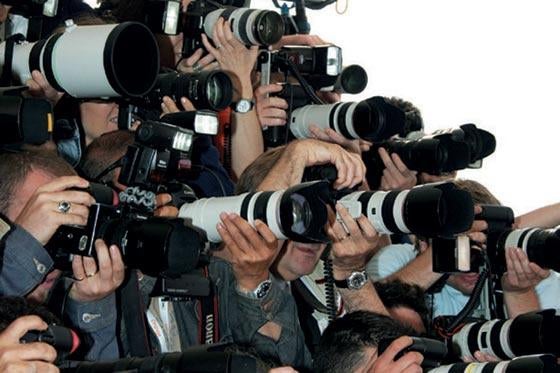
Police obstruction of journalists covering demonstrations is “unacceptable”‘ and more needs to be done to make officers aware of the rules, a parliamentary committee has found.
In a new report on the policing of protests, published today, the parliamentary joint committee on human rights said it was concerned by “numerous reports” that police had become more heavy-handed in recent years.
The committee heard from the National Union of Journalists that police were conducting surveillance of photographers, denying them access to protests and not recognising press cards.
In his evidence to the joint Lords and Commons committee, NUJ general secretary Jeremy Dear said: “What we are seeing is a group of journalists who regularly cover protests being stopped and searched, way away from the protest, being photographed, having information recorded about what they are wearing, where they are going, who they are working for and so on.
“It is creating an intimidatory atmosphere that means people are less likely to go out and cover protests.”
The Association of Chief Police Officers has agreed a set guidelines on police-media relations with the NUJ, which require officers to recognise the “important role” of journalists covering protests.
But Dear told the panel of MPs and peers that the guidelines were “useless because the police on the street do not know anything about them”.
In its newly published report, the committee said it was “unacceptable that individual journalists are left with no option but to take court action against officers who unlawfully interfere with their work”.
It said: “Journalists have the right to carry out their lawful business and report the way in which demonstrations are handled by the police without state interference, unless such interference is necessary and proportionate, and journalists need to be confident that they can carry out their role.
“The media are the eyes and ears of the public, helping to ensure that the police are accountable to the people they serve.
“Effective training of frontline police officers on the role of journalists in protests is vital.
“Police forces should consider how to ensure their officers follow the media guidelines and take steps to deal with officers who do not follow them.”
Committee chairman Andrew Dismore said: “Of course there is a balance to be struck between the rights of protestors, the police and the public but the state must not impose restrictions unless it is necessary, and proportionate, to do so.
“That is a high threshold. The presumption is in favour of protest without state interference.
“We believe there are changes to the law and practice that are needed to make that presumption a reality.”
Email pged@pressgazette.co.uk to point out mistakes, provide story tips or send in a letter for publication on our "Letters Page" blog
